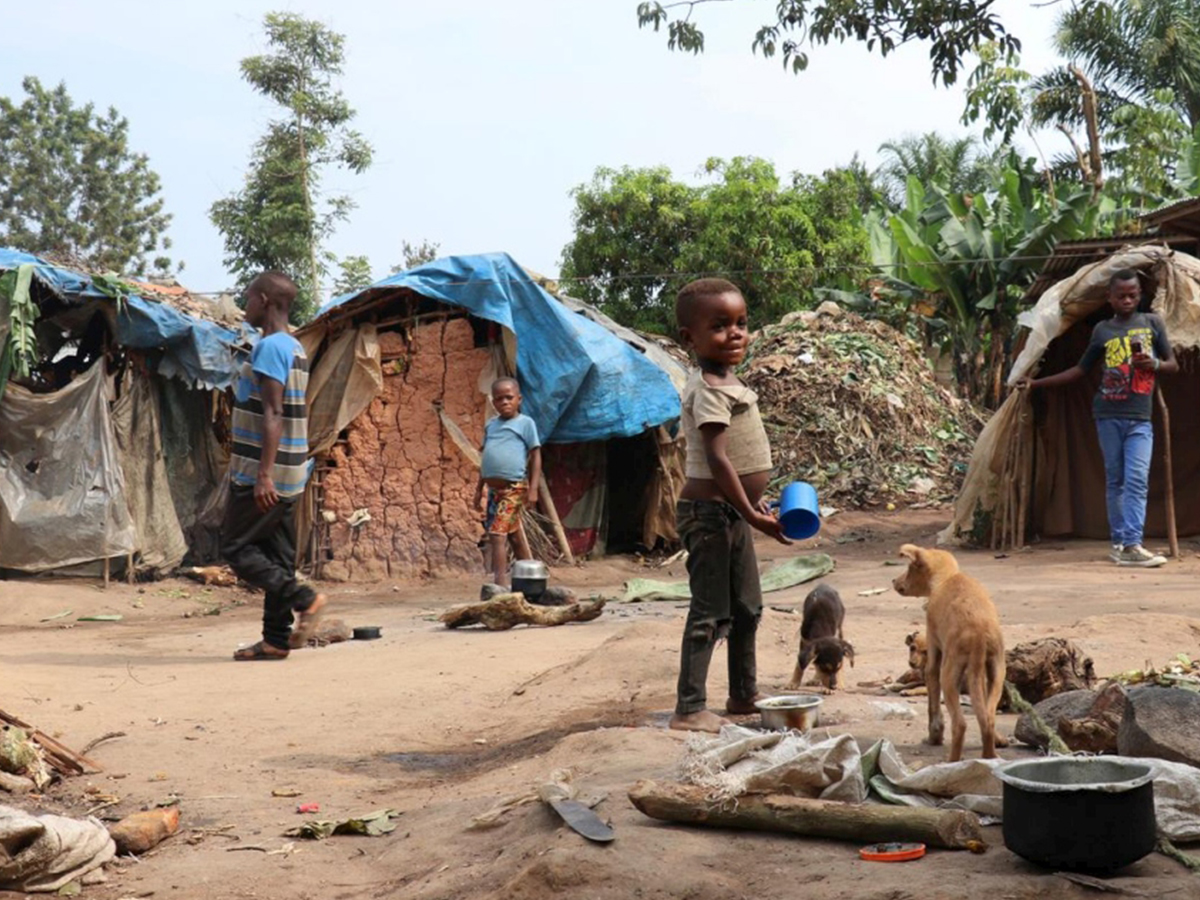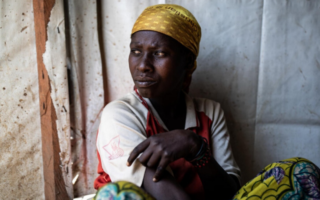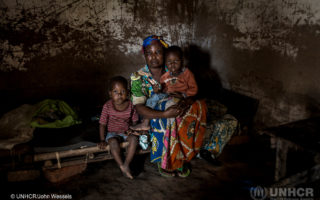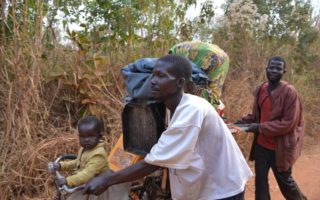
A young boy plays at a makeshift site for internally displaced people in DRC, July 2018. © UNHCR/Natalia Micevic
This is a summary of what was said by UNHCR spokesperson Charlie Yaxley – to whom quoted text may be attributed – at today’s press briefing at the Palais des Nations in Geneva.
UNHCR, the UN Refugee Agency, and its humanitarian partners remain extremely concerned for the safety and security of hundreds of thousands of civilians in the Democratic Republic of Congo (DRC)’s eastern Beni Territory, after deadly violence and mass protests have cut off humanitarian access to the troubled region.
Tensions in this part of DRC’s North Kivu province have been rising since the launch of a government-led security operation against the Allied Democratic Forces (ADF) on October 30. Armed groups have been targeting civilians and displaced populations in the region, killing scores of people.
Growing estimates are that at least 100 people were reported to have been killed in violent attacks in the Beni region since November 2, with thousands displaced, the vast majority of them women and children. Additional mass displacements have been reported from Mbau and Oicha localities, north of Beni. People are taking refuge in the Beni town, in an attempt to flee attacks, and the ongoing fighting between the army of the DRC and ADF.
Information is difficult to verify, as the movement of humanitarian workers is restricted due to insecurity around the city and in the territory of Beni, as a result of violence. Alarming reports from the region suggest people being trapped and under threat from the armed groups, with daily reports of loss of life. Abductions and attacks on schools, health centres and indigenous communities are also on the rise.
UNHCR and its partners are calling for an urgent need to restore security to allow humanitarian agencies immediate access to support the affected population. Hundreds of households are currently sleeping in churches and schools.
Children are in need of immediate support, many of whom have lost their parents or have arrived unaccompanied. Forced recruitment by armed groups is a real threat to the safety of children. Women also face widespread sexual violence, abuse and risk of exploitation. We fear many more lives could be lost if humanitarian access as well as law and order is not immediately restored in the areas.
UNHCR works in and around Beni in the sectors of protection, shelter and coordination. We have been building emergency shelters for displaced populations, promoting peaceful co-existence between displaced people and host communities, and working with local authorities on gathering information about displaced persons’ profiles and vulnerabilities, in order to better respond to their protection and assistance needs.
According to official estimates, the city of Beni is home to almost half-a-million people. There are some 275,000 displaced people in the territory. With ongoing insecurity, many have been left stranded at the mercy of the armed groups.
The current insecurity adds to an already-complex displacement situation in North Kivu, with an existing 1.5 million internally displaced persons by the conflict and ongoing efforts to fight the deadly Ebola virus.
For more information on this topic, please contact:
- In Kinshasa, Alexandra Stenbock, stenbock@unhcr.org, +24 38 22 25 31 21
- In Pretoria, Hélène Caux, caux@unhcr.org, +27 82 376 5190
- In Geneva, Charlie Yaxley, yaxley@unhcr.org, +41 79 580 8702
- In Geneva, Babar Baloch, baloch@unhcr.org, +41 79 513 9549
Originally published on UNHCR on 29 November 2019





